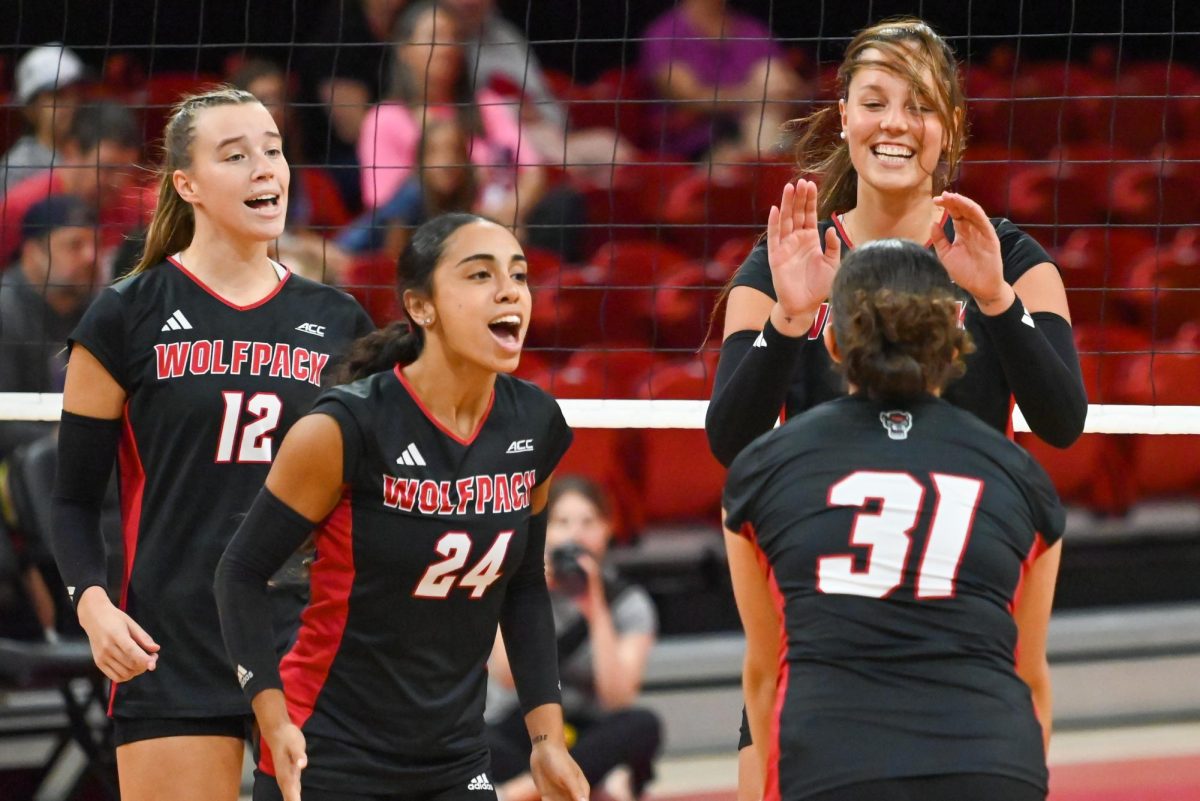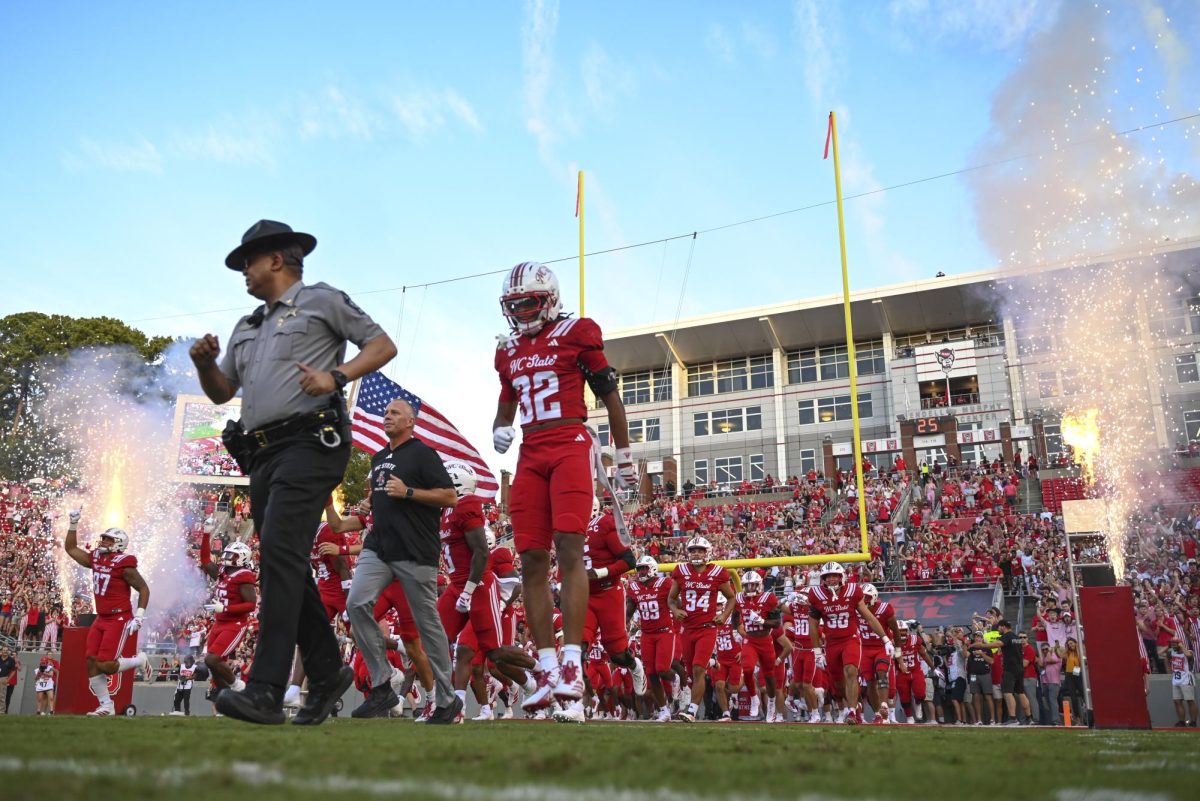Three N.C. State students have been awarded the Barry M. Goldwater Scholarship, a fellowship that recognizes the achievements of undergraduates in the fields of science, mathematics and engineering.
This year’s winners were Mithi de los Reyes, a senior in physics and mathematics, Eric Alexy, a junior in chemistry, and Jim Turner, a senior in mechanical engineering.
Students at N.C. State have been successful at winning Goldwater Scholarships and this year topped Harvard, the University of California at Berkeley and the Massachusetts Institute of Technology, which had two scholars each, and tied with the California Institute of Technology and Stanford University.
N.C. State was also the most successful institution in North Carolina, beating out top universities such as UNC-Chapel Hill and Duke University.
The Goldwater Scholarship was created to inspire sophomores and juniors majoring in the natural sciences, mathematics or engineering to pursue research careers in these particular fields, according to Tiffany Kershner, coordinator for Distinguished Scholarships and Fellowships. Students must plan to further pursue their careers by obtaining advanced academic degrees and conducting research in their fields.
In order to receive the scholarship, students must apply in the fall of their sophomore or junior year. Applications are then reviewed by a campus committee, and the nominees are chosen.
“The application process for the Goldwater and any other fellowship or scholarship is an invaluable learning experience in itself,” Kershner said. “In their applications students learn how to articulate their current work, their motivations and their goals for future growth. Students find the fellowship advising and application process to be a rewarding experience even if they do not win the award.”
Each student who is awarded the scholarship receives $7,500, which covers expenses for undergraduate tuition, fees, books, and room and board.
Alexy said the research he has done as an undergraduate as well as the honor of being recognized as a Goldwater Scholar is a significant one.
“I’ve worked on a number of research projects, but the one I highlighted in my essay for the scholarship dealt with my work involving a new class of synthetic light-harvesting pigments which were found to absorb light across the entire-visible spectrum, while at the same time retaining key properties that may allow for their use in solar energy conversion processes,” Alexy said. “The experience of making a new discovery is a remarkable feeling, and one that I will likely chase throughout my entire scientific career.”
Alexy said the recognition was humbling, especially considering the accomplishments of his peer Goldwater scholars.
De los Reyes said her research proposal for the Goldwater Scholars was based on a research experience she had while interning with Space Telescope Science Institute in Baltimore. This institute runs science operations for the Hubble Space Telescope.
“I worked with Dr. Janice Lee and Dr. Chun Ly to study galaxy evolution using data from a ground-based telescope,” de Los Reyes said. “That was a lot of fun, and I continued working on the project when the summer ended. I just submitted my first paper to The Astronomical Journal as first author. I’ve always wanted to be a research scientist, so it felt like a sort of affirmation–you know, proof that I’m actually going in the right direction with my life.”
Turner said his research uses foldable structures to generate “localized heating” for a low cost.
Turner said his research could be used to make a precisely timed drug release device or a minimally invasive heart stent that expands by itself without the need for manual force from the surgeon. On a larger scale, the technique could be used to quickly construct shelters in disaster relief areas from flat polymer sheets with minimal effort.
All three scholarship winners said the support they received at the University was invaluable.
“The Goldwater was gratifying, but life and research never stop,” de los Reyes said.




